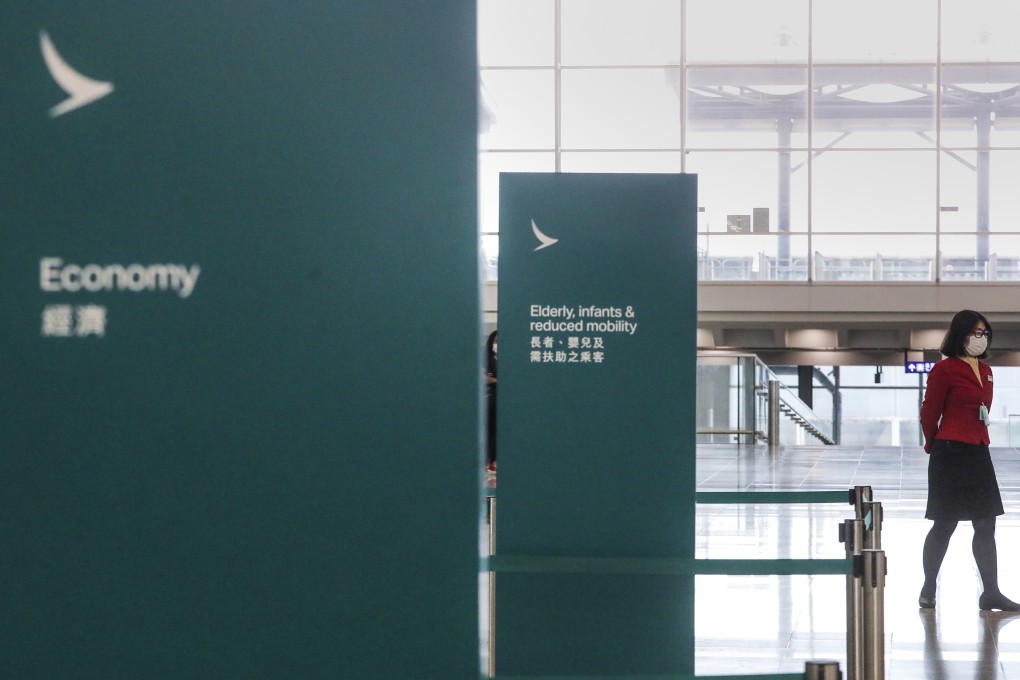Goal of massive Cathay bailout is to protect Hong Kong’s role as global aviation hub and ensure city’s economic future, finance chief says
- Hong Kong officials view Cathay’s possible collapse as a fundamental threat to the city’s aviation sector
- Government will provide a lifeline of HK$27.3 billion, representing 1.5 times the company’s market capitalisation, as part of a HK$39 billion rescue

With the airline controlling more than half of passenger traffic and carrying nearly two-fifths of cargo in the Asian financial hub, officials viewed Cathay’s possible collapse as a fundamental threat to its aviation sector.
Under the recapitalisation plan unveiled on Tuesday, the government will provide a lifeline of HK$27.3 billion, representing 1.5 times the company’s market capitalisation, and take a 6.08 per cent stake.

01:29
Hong Kong government to bail out Cathay Pacific with HK$30 billion in loans and direct stake
The goal of the bailout is to protect Hong Kong’s role as a global aviation hub and ensure the city’s long-term economic development, while generating a reasonable return for the government, according to Financial Secretary Paul Chan Mo-po.
“It’s not a random person or a random company,” Chan said. “We have to safeguard [the city’s] aviation rights, otherwise this will cause systematic risk.”
If Cathay failed to operate flights and maintain routes, Hong Kong could be forced to surrender air traffic rights to competitors in mainland China and overseas.
“If this challenge is not properly addressed, it would harm Hong Kong’s international aviation hub status, and adversely impact other economic activities, to the detriment of the overall interest of Hong Kong,” he said.